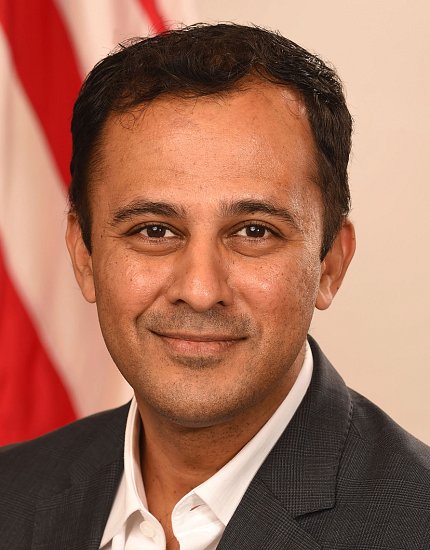Future of Antibiotics Is Subject of LaMontagne Lecture

Hailed as one of the most important achievements in medicine, the discovery and subsequent introduction of antibiotics meant that people could be treated and cured of once-fatal bacterial infections. However, the overuse and abuse of antibiotics is a growing public health concern, both in the United States and around the globe.
Over time, bacteria have evolved to develop resistance to drugs that normally would kill them or limit their growth. As a consequence, many antibiotics have become less effective and are enabling untreatable strains of carbapenem-resistant Enterobacteriaceae (CRE) and other bacteria to survive and multiply. Dr. Ramanan Laxminarayan will discuss this problem and potential solutions during the 2016 John Ring LaMontagne Memorial Lecture titled “The State of the World’s Antibiotics” at 3 p.m. on Tuesday, Apr. 5 in Lipsett Amphitheater, Bldg. 10.
Laxminarayan is director and senior fellow at the Center for Disease Dynamics, Economics & Policy in Washington, D.C., and a senior research scholar and lecturer at the Princeton Environmental Institute at Princeton University. He is also a distinguished professor of public health at the Public Health Foundation of India.
In 2014, Laxminarayan served on the U.S. President’s Council of Advisors on Science and Technology’s antimicrobial resistance working group. Currently, he is a voting member of the U.S. Presidential Advisory Council on Combating Antimicrobial Resistance. An economist and epidemiologist by training, his research integrates the use of epidemiological models of infectious disease and drug resistance into the economic analysis of public health problems.
Laxminarayan will review the current supply of antibiotics and highlight promising new products in the development pipeline. He will also describe global patterns and trends in antibiotic resistance and antibiotic use in humans and animals. Further, Laxminarayan will discuss interventions to help streamline antibiotic use that could be applied in many different countries.
The NIAID-sponsored lecture honors contributions to NIH and public health made by LaMontagne during his 30-year career with NIAID. He earned international recognition and widespread admiration for his distinguished leadership and accomplishments in fighting emerging and re-emerging infectious diseases. He served as NIAID deputy director from 1998 until his untimely death in 2004.
